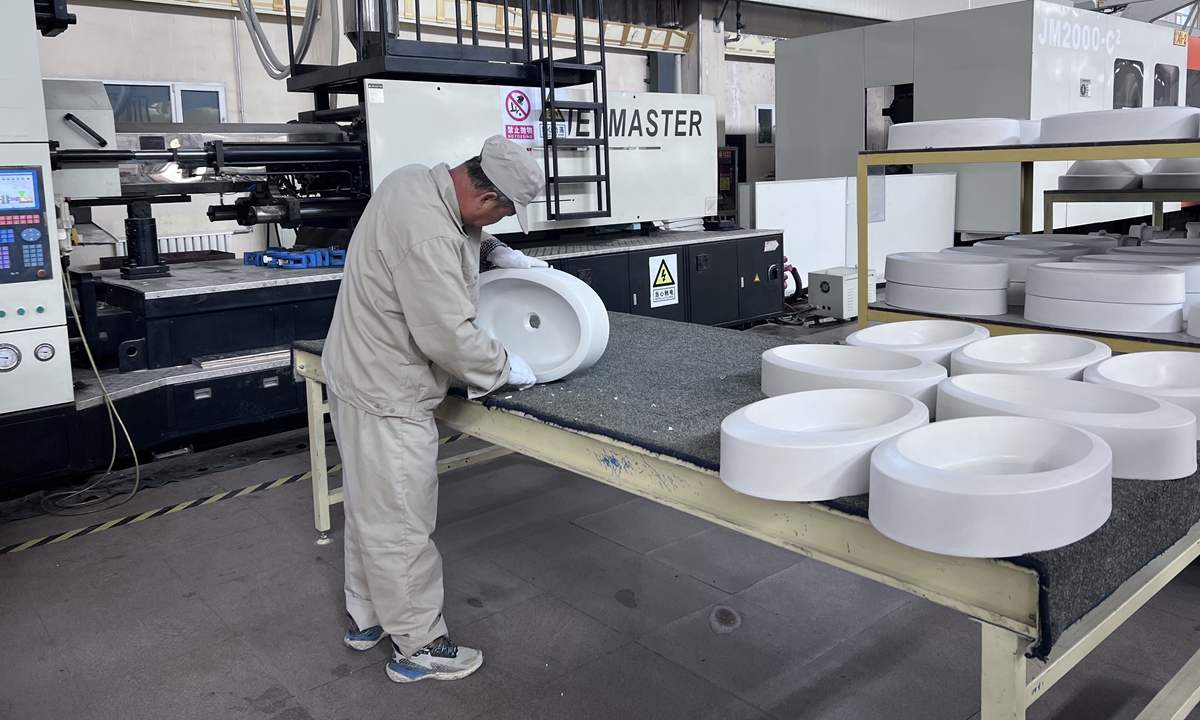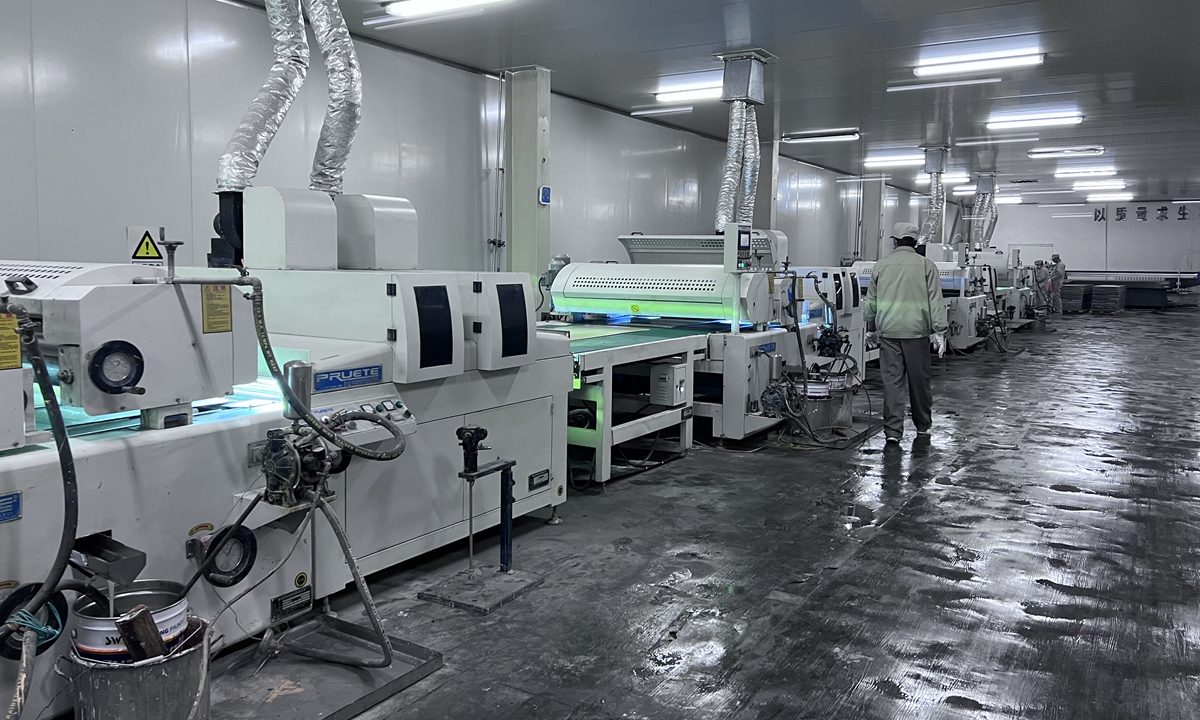Company in Qinghai produces eco-friendly sanitary products with innovative material to support local sustainable development

Photo: Leng Shumei/GT
By fully harnessing its natural endowments, Northwest China's Qinghai Province has been a trailblazer in recent years in the development of clean energy. In the latest achievement, a local company produced a thermoplastic resin compound material to produce water-saving and eco-friendly sanitary products to support local development.
Qinghai is known for its rich water, solar and wind power resources. It has become China's major producer of lithium and the province has rich deposits of potassium, strontium, bromine, salts, silicon, and magnesium, in addition to reserves of copper, lead and zinc.
However, the region has a fragile ecosystem, Chi Liqun, owner of the Qinghai Xiwang Hi-Tech & Material Co, Ltd, told the Global Times.
Chi, born in the 1960's in East China's Zhejiang Province, came to Qinghai to operate copper and iron mines in Dulan county in Qinghai in 1996.
My iron mine was quite profitable and contributed about half of Dulan's GDP at that time. But gradually, I realized that reliance on non-renewable resources was not a long-term business, Chi said.
As a former member of the Standing Committee of the 11th Qinghai People's Political Consultative Conference, Chi noted that the Qinghai provincial government also pays high attention to environment protection and the sustainable development of the region, encouraging local companies to innovate in new low-carbon-emission materials instead of using traditional materials.

Photo: Leng Shumei/GT
Chi started research on 2002 in cooperation with research institutes in Shanghai and Wuhan.
Ten years later, the team developed an innovative thermoplastic resin compound material that is of high strength, corrosion and wear resistant and recyclable.
He decided to use the material to produce ecofriendly sanitaryware products as he always deemed that current ceramic products were unsustainable.
The firing process to produce traditional ceramic sanitary ware consumes a lot of energy from coal, liquefied gas to electric power and it has to be conducted in a high temperature of 1,300 C for a long period. Not to mention the high rejection rate during the process, which not only pollutes the environment, but aggravates the depletion of clay resources as ceramic products cannot be recycled, Chi explained.
Long Guangcan, the R&D and Art Director of Qinghaixi Wang sanitary ware products, also a former professor at the Jingdezhen Ceramic Institute in China and senior designer in the Chinese industry, agreed with Chi, highlighting the low energy utilization rate during the firing process.
Given tendency of reducing carbon emission and environment protection in the manufacturing industry, green materials can profoundly change the industry, Long noted.
According to the US Environment Protection Agency, recent advancements have allowed toilets in the US to use 1.28 gallons of water, approximately 4.9 liters, per flush or less while still providing equal or superior performance. This is 20 percent less water than the federal standard of 1.6 gallons per flush.
According to the study of some researchers at the Jingdezhen Ceramic Institute in China, the ceramic polishing in China creates 70 million tons of waste materials. The ceramics in the waste stream, particularly those from colorfully glazed products, often contain heavy metals that are bad for the environment, read an article by the American Ceramic Society published in May 2021.
In comparison, the flush toilets made of the thermoplastic resin compound material use less than three liters of water per flush, saving about one liter per flush compared with ceramic products.
The company can produce and assemble a water-saving toilet every three minutes and a bathtub every five minutes, according to technicians.
Based on the characters of the materials, the products could be 100 percent recycled, the company said.



